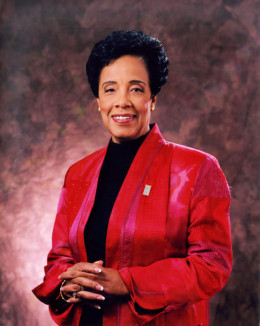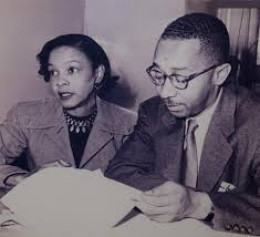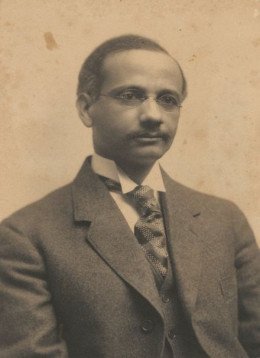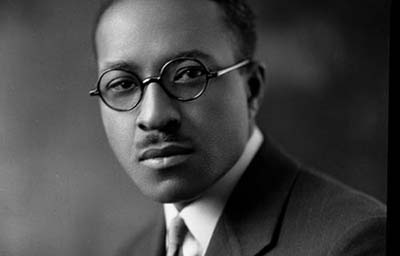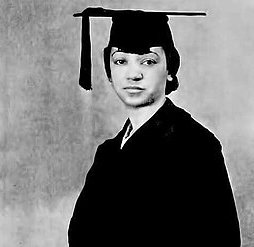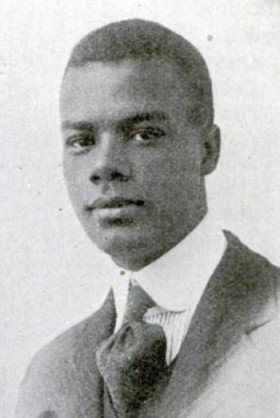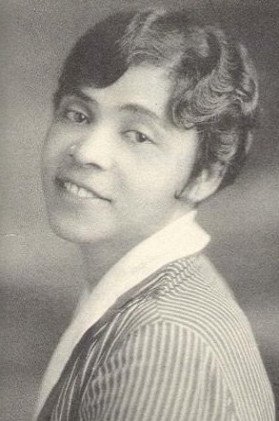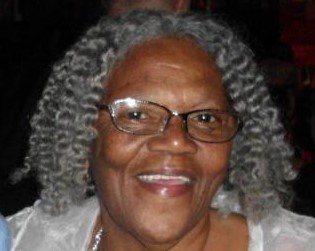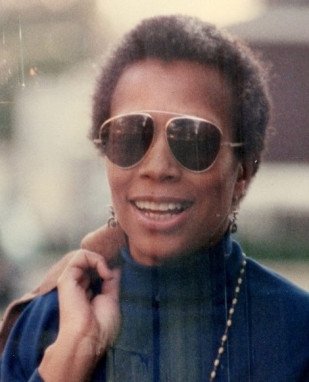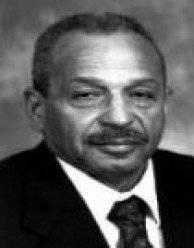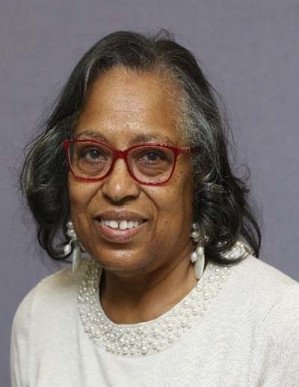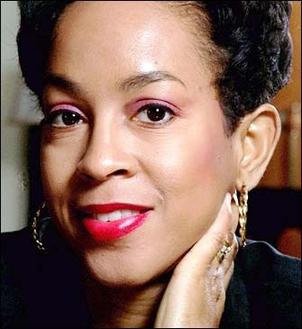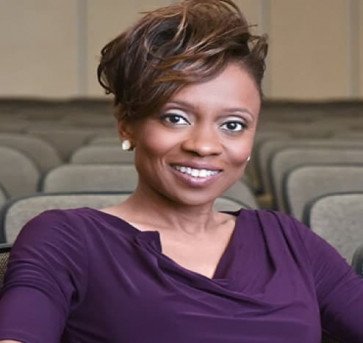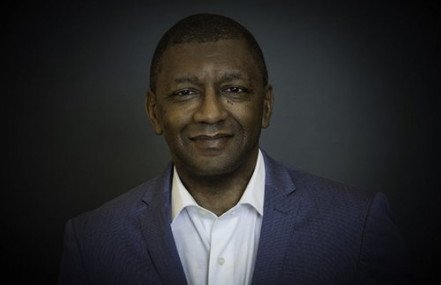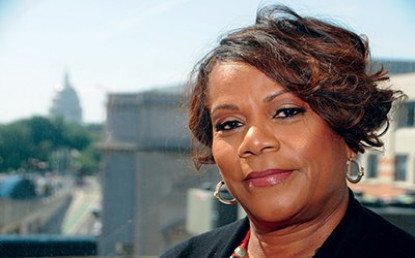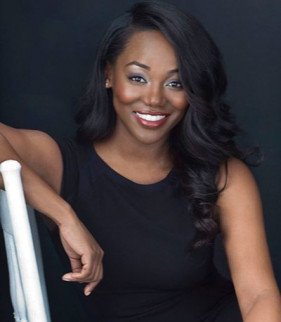Black Pioneers in Social Work and the Mental Health Field
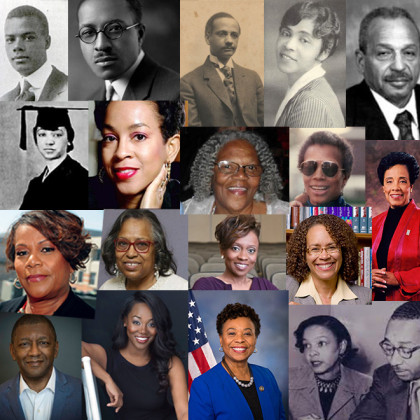
We recognize and celebrate the work that has been done, and which is currently underway by Black pioneers and advocates in the fields of social work, mental health, sociology and psychology.
Black Americans have experienced centuries of violence and trauma because of white supremacist structures and institutions, including traumas previously sanctioned by the larger mental health field. It’s important that we not forget or erase those traumas. It is also necessary to celebrate the trailblazers who have worked to upend those systems, resulting in cultural change for Black folk and even resulting in benefits to the non-Black population.
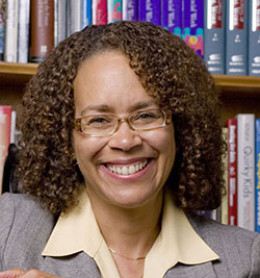
Darlyne Bailey
M.S., Ph.D. and Founder of Social Justice Initiative
(1952 - Present)
Darlyne was born in New York City to Arthur and Iris Bailey. She was one of the first women to attend Lafayette College and graduated in 1974 with a Bachelors of Art in Psychology and Secondary Education. Then she received a Master of Science in Psychiatric Social Work from Columbia University in 1976 and a doctorate of Organizational Behavior in 1988.
Born in Harlem and raised in Englewood, NJ she “grew up feeling like she was on the margins”. Her high school was one of the first to desegregate its schools and she was one of nine women among the 2,000 students in the fall of 1970.
During her tenure as Special Assistant for Community Partnerships to the President at Bryn Mawr she created the Social Justice Initiative. “This initiative helps bring people with the same goals together by connecting participatory research, education, and community based services together. When the right people come together at the right time, sheer magic can happen. That brings me the most joy.” - Darlyne Bailey
She was also involved in expanding the “fathers in families” issue in social work creating a model for assisting responsible fatherhood programs in the child welfare system.
Dr June Gary Hopps
Dedicated her life to issues of race, inequality, social justice and human and civil rights
Dr. Hopps’ involvement organizing sit-ins and boycotts in Atlanta during the Civil Rights Movement in 1960 led to a lifetime of working towards social justice and equality. She not only made large strides in social justice she fought for expanded opportunities for education in social work throughout New England.
She served as Dean of the Graduate School of Social Work at Boston College from 1976 - 2000. She became the first African American and youngest Dean to date. While there she also served as the Editor-In-Chief of Social Work the NASW journal where she focused on writing workshops that allowed more people of color and women to get their research published.
Currently she is the Thomas M. Parhap Chair of Family and Children Studies at the University of Georgia. This position allows her to be the school’s leading authority on public policy in the areas of children and families and work with state and federal government on these policies and any policy issues.
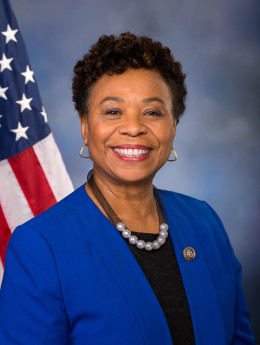
Congresswomen Barbara Lee
Barbra Lee
Congress Women and Author
(1964 - Present)
Barbra Lee took her social work knowledge all the way to Congress. Every decision she made and every vote she cast was based on the knowledge she gained at UC Berkeley School of Social Welfare. Seeing segregation first hand while growing up in El Paso, Texas ingrained in Lee to be an activist and advocate for her community and the most vulnerable in it. "I saw poverty, lack of jobs and drug abuse in neighborhoods large and small filled with primarily blacks and Latinos, and I began to understand institutional racism as it was manifest in the ghettos and barrios of Southern California," writes Lee in her book, Renegade for Peace and Justice.
She became a member of Congress in 1988 and advocated for AIDs research, served as the Chair of the Congressional Black Caucus and might best be known for being the only opposition to President Bush’s request for authorization to use “all necessary and appropriate force” after September 11, 2001. From the beginning and through her more than two decades tenure in Congress, Barbara Lee exited in January 2025 - a renegade with many firsts under her belt.
Mamie Phipps Clark, PhD (1917 - 1983)
Kenneth Clark, PhD (1914 - 2005)
Pioneers in studying Racial Biases in Children
Mamie Clark’s Masters Thesis was titled “the development of consciousness of Self in Negro Pre-School Children”. After writing it she met her future husband, Kenneth Clark, and together they extended their research on self-identification in Black children.
The Clarks were the first African-Americans to obtain their doctoral degrees in psychology from Columbia University. Kenneth Clark was the First African-American tenured full professor at the City College of New York, the first African-American to be president of American Psychological Association and the first African-American appointed to the New York State Board of Regents.
Together they opened the Northside Center for Child Development in 1946 - Harlem’s first full time child care center that offered psychological and casework services. This led to the famous doll study that showed that even young children had already developed racial biases. Together they moved along the civil rights movement and even had the expertise to testify in Brown vs. Board of Education.
SOLOMON CARTER FULLER, M.D.
An Advocate for Mental Health in WWI and a Pioneer in Alzheimer’s Disease
(1872-1953)
Dr. Solomon Carter Fuller was the first African American psychiatrist who made significant contributions to the study of Alzheimer’s disease. He was born in Liberia, the son of a previously enslaved African American who had purchased his freedom and emigrated there. He graduated from Boston University School of Medicine, a homeopathic institution, which was open to both African American and woman students. In 1903 Solomon Carter Fuller was one of the five foreign students chosen by Dr. Alois Alzheimer himself to do research at the Royal Psychiatric Hospital at the University of Munich. Fuller sought to mitigate racial disparities in mental health care by training young Black psychiatrists to treat Black veterans of World War I. He spent most of his career practicing at Westborough State Mental Hospital in Westborough, Massachusetts. While there he performed his ground-breaking research on the physical changes to the brains of Alzheimer’s Patients. In 1974, the Black Psychiatrists of America created the Solomon Carter Fuller Program for young black aspiring psychiatrists to complete their residency.
EDWARD FRANKLIN FRAZER
Most Prominent African American Sociologist of the 20th Century
(1894-1962)
Associated with both the Atlanta School of Social Work and Howard University’s Department of Sociology and School of Social Work, E. Franklin Frazier was an activist, researcher and administrator who contributed significantly to the social work profession. An outspoken and sometimes militant activist for social justice, Frazier was also the first African American president of the American Sociological Society. He was an accomplished writer. His first major work, The Negro Family in the United States (1939), examined how social historical factors such as slavery, white terror, urban migration, and social disruptions affected the health of the African American family. Black Bourgeoisie (1957) was Frazier’s most celebrated and criticized work.
INEZ BEVERLY PROSSER Ph.D.
First Black Women to Earn a Ph.D. in Psychology
(1895-1934)
Inez Beverly Prosser was the first Black Woman to earn a Ph.D. in psychology in 1933, an accomplishment celebrated by a cover feature on The Crisis - the official magazine of the National Association for the Advancement of Colored People as well as her friends and family. Her parents had planned to send her brother to college instead of her, but she showed more of a passion for it and her brother helped talk her parents into sending her. Her earnings helped send another five of her ten siblings to college as well. Her dissertation “The Non-Academic Development of Negro Children in Mixed and Segregated Schools,” evaluated the effects of racial inequality and racism on the development of Black children’s identity and mental health. Her research and arguments helped lead some of the first discussions about desegregating American schools. Although her life was short at just 38 years of age, Prosser was instrumental in assisting many black students in obtaining funds for college and for graduate study.
LESTER BLACKWELL GRANGER
First Black Man to be President of the National Conference of Social Work (NCSW)
(1896-1976)
Lester Blackwell Granger launched his career as a high school teacher and a social worker. In 1952, he became the first Black man to serve as president of the National Conference of Social Work. He spent most of his time as acting NCSW president advocating for civil rights measures. As national executive secretary of the National Urban League from 1941 to 1961, he was a champion of integration and equal treatment for African Americans. After WWII, he served as a special consultant to the Navy in support of efforts to desegregate the military, which earned him the Navy’s Distinguished Civilian Service Award and the Presidential Medal for Merit. In 1958, he was one of four civil rights activist leaders, including Martin Luther King Jr., to meet with President Eisenhower to discuss civil rights reform. Granger served as president of the National Urban League for a large part of his career.
THYRA J. EDWARDS
A Fierce Advocate for Women and Children
(1897-1953)
Thyra J. Edwards, the granddaughter of runaway slaves, began her career as a school teacher in her hometown of Houston, Texas. After moving to Chicago, Illinois she shifted her focus to social work. She pursued her interest in child welfare through a variety of social work positions, which led the way to her founding her own children’s home. “From her point of view social work should: advocate for disadvantaged and at-risk populations; focus on issues and problems specifically affecting the well-being of women; and demonstrate the ability to work with diverse populations.” Edwards held travel seminars around the world, focusing on at-risk populations and women in many cultural contexts. By 1944 Edwards was heralded as “one of the most outstanding Negro women in the world.” At a time when it was believed that Black social workers should only focus on Black clients, she worked with people of all races and nationalities. In 1953, she organized the first Jewish child care program in Rome to help Holocaust survivors. Edwards was also a skilled journalist, orator and union organizer, and served as the executive director of the Congress of American Women.
JACKI McKINNY, M.S.W
An Expert in Trauma
(1934-2021)
Ms. McKinny was a survivor of trauma, addiction, homelessness and the psychiatric and criminal justice systems. While receiving help from the D.C. Rape Crisis Center, she was connected with some of the most elite medical professionals in the country, but she noticed that the doctors and therapists could not relate to her or with her. This ignited a fire in Jacki to talk about the lack of cultural competency in the medical profession, most specifically around the mental health and trauma that she knew all too well. She became a family advocate specializing in issues affecting African American women and their children and is a founding member of the National People of Color Consumer/ Survivor Network.
Ms. McKinny was a consultant and advisor to the Center for Mental Health services and is well known for her moving presentations to national audiences on issues such as seclusion/ restraint, intergenerational family support, and minority issues in public mental health. Additionally, Ms. McKinny was a proud recipient of the Mental Health Americas highest honor, The Clifford W. Beers Award, presented to a consumer of Mental Health and/or substance abuse services who best reflects the example set by Beers for efforts to improve conditions for and attitudes toward, people with mental illnesses. She was also the recipient of a Lifetime Achievement Award from the Substance Abuse and Mental Health Services Administration’s Voice Awards program which was presented to her for her distinguished leadership and advocacy on behalf of trauma survivors.
E. KITCH CHILDS, Ph.D.
Internationally Known Clinical Psychologist
(1937-1993)
In 1969, E. Kitch Childs helped to found the Association for Women in Psychology as well as Chicago’s Gay Liberation Front. In addition to being a leader for women in psychology and the LGBTQ+ community, she also owned her own practice in which she provided therapy to LGBTQ+ folks, people living with HIV/AIDS, and other marginalized members of her community. She practiced feminist therapy, and centered her research and work around the experiences of Black women and feminist theory.
She worked to revise the American Psychological Association’s attitude towards homosexuality (listed as a psychological disorder in DSM until 1973). That work gained her an induction into the Chicago LGBT Hall of Fame.
MAXIE CLARENCE MAULTSBY, JR., M.D.
Founder Rational Behavioral Therapy
(1932-2016)
Dr. Maultsby was the founder of the psychotherapeutic method, rational behavioral therapy. Through his work and therapeutic method, Dr. Maultsby explored emotional and behavioral self-management. His unique contributions included making emotional self-help a legitimate focus of scientific research and clinical use. Through rational behavior therapy, he formulated a comprehensive system of cognitive-behavioral psychotherapy and counseling that incorporated, in a clinically useful way, the most recent neuropsychological facts about how the brain works in relation to emotional and behavioral self-control. The technique of cognitive-behavioral therapy and counseling that Dr. Maultsby created is the first comprehensive, yet short-term, culture and drug-free technique of psychotherapy that produces long-term therapeutic results. In addition to authoring books for health professional therapist and counselors, Dr. Maultsby has written four pioneering books that describe his method of emotional self-help, called rational self-counseling.
“His main interest was teaching people how they can free themselves from emotional suffering. Maultsby believed that for people with chemically and structurally healthy brains, most suffering comes from the learned emotional habits and the cultivation of unhealthy attitudes, beliefs and thoughts.” - Author Unknown
Dr. Ruby M. Gourdine
Expert in the Fields of Juvenile Justice, Foster Care and Adoption
(1948 - 2022)
A longtime professor at Howard University, Ruby Gourdine began her career as a probation officer in the Juvenile and Domestic Relations Court of Richmond, Virginia, where she became interested in issues of race and child welfare. She earned her bachelor’s and doctorate degrees from Howard University. Atlanta University School of Social Work awarded her a master’s degree in social work and then in 1992, she graduated from Howard University’s School of Social Work. She has worked as a clinician, administrator, consultant, and researcher in the fields of juvenile justice, foster care and adoption (child welfare), medical social work, school social work, a well as social work history. She was honored as a social work pioneer by NASW in 2010 and was selected social worker of the year by the Metro Chapter of NASW in 2000. Her work on behalf of children with disabilities led her to become the State Supervisor for Social Work Services in the D.C. public school system.
BEBE MOORE CAMPBELL
Author and the force behind National Minority Mental Health Awareness Month
(1950-2006)
Bebe Moore Campbell was an American author, journalist, teacher, and mental health advocate who worked tirelessly to shed light on the mental health needs of the Black community and other underrepresented communities. Spurred by her “we don’t want to talk about it” experience with mental health in her own family, her work and her books illuminate the struggles of Black and brown individuals plagued by mental health conditions. This includes her 2006 New York Times best selling novel “72 Hour Hold” where her fictional characters were inspired by real life parents who confronted “forces that prioritized white privilege and not colored pain” in the mental health systems.
She founded NAMI – Inglewood in a predominantly Black neighborhood to create a space that was safe for Black people to talk about mental health concerns. Before her untimely death from cancer in 2006, Campbell advanced a national movement to designate each July as National Minority Mental Health Awareness Month. On June, 2, 2008 Congress formally recognized Bebe Moore Campbell National Minority Mental Health Awareness Month to bring awareness to the unique struggles that underrepresented groups face regarding mental illness in the US.
JENNIFER EBERHARDT, PH.D.
Implicit Bias Expert
Jennifer Eberhardt is an esteemed professor of psychology at Stanford University. She has dedicated her career to illuminating the implicit prejudice that guides people’s behavior and decision-making processes. She is an expert on consequences of the psychological association between race and crime and has done extensive research on the topics of implicit bias, criminal justice, and the education system. Her work has provided the evidence needed to educate law enforcement officers in implicit bias training and she has been an advisor to police forces across the country. She authored a book in 2019 titled Biased: Uncovering the Hidden Prejudice That Shapes What We See, Think, and Do. In 2014, Dr. Eberhard’s work earned her the famous MacArthur “Genius Grant” Fellowship.
HOWARD C. STEVENSON Ph.D.
A leader in racial literacy
Dr. Howard Stevenson is a nationally sought expert on how racial stress and racial trauma can affect every stage of life. He is shining a guiding light on the importance of racial literacy. His work focuses on how educators, community leaders, and parents can emotionally resolve face-to-face racially stressful encounters that reflect racial profiling in public spaces, fuel social conflicts in neighborhoods, and undermine student emotional well-being and academic achievement in the classroom. Dr. Stevenson has served for 30 years as a clinical and consulting psychologist working in impoverished rural and urban neighborhoods across the country. Dr. Howard Stevenson is the Constance Clayton Professor of Urban Education, Professor of Africana Studies, in the Human Development & Quantitative Methods Division of the Graduate School of Education at the University of Pennsylvania. Dr. Stevenson is Executive Director of the Racial Empowerment Collaborative (REC), a research, program development, and training center that brings together community leaders, researchers, authority figures, families, and youth to study and promote racial literacy and health in schools and neighborhoods. He is the author of Promoting Racial Literacy in Schools: Differences That Make a Difference.
MILDRED JOYNER, MSW, LCSW
A Pioneer in Social Work
Mildred “Mit” Joyner has been a community activist and a pioneer in teaching, writing and researching gerontology and multicultural issues for 30 years. She began her career as a child welfare worker in the Chester County Children, Youth and Families Agency in Pennsylvania. She went on to establish the first Master of Social Work program in the Pennsylvania state system of higher education. Joyner has served as a leading member of nearly every social work professional organization, including president of National Association of Social Work which named her a Social Work Pioneer. As the inaugural John E. & Barbara S. Jacob Distinguished Endowed Professor at Howard University, Joyner is developing the first cohort of Howard University Social Work Social Justice (HUSWSJ) fellows. Ten students will be selected to participate in a six-month interactive learning and practice collaboration to conduct research on social work and social justice leadership.
“It is important that we as social workers continue to push, to agitate and to demand the rights for all people” “Social work is my dream, and I will continue to dedicate all my professional work to make those dreams a just reality.” – Mildred Joyner, MSW, LCSW
BEA ARTHUR, LMHC, ED. M, MA
A leader in the intersection of tech and mental health
Bea Arthur, LMHC is a Columbia University-trained psychotherapist, startup founder, and speaker who works with high-performance individuals in high-pressure work environments. Her career lives at the intersection of psychology and technology and her third company, The Difference, connects users with on-call therapists to provide affordable access to therapy anytime anywhere. Bea also hosts Office Hours, Women@Forbes’ career therapy digital series where she provides intra-praneurship advice to upwardly mobile women in today’s hottest companies. Founder and licensed therapist, Bea Arthur, has been called “innovative and inspiring” by the American Counseling Association. She’s leading the modern mental health movement as one of the first to move therapy online with streaming video, and now she’s innovating once again utilizing voice technology. Bea is a regular contributor to Forbes, and has been featured in Elle, Fast Company, Huffington Post, NPR, CNN and MTV. She was named part of the New Guard of women in tech by Marie Claire magazine as well as an Entrepreneur To Bet On by Newsweek Magazine.
